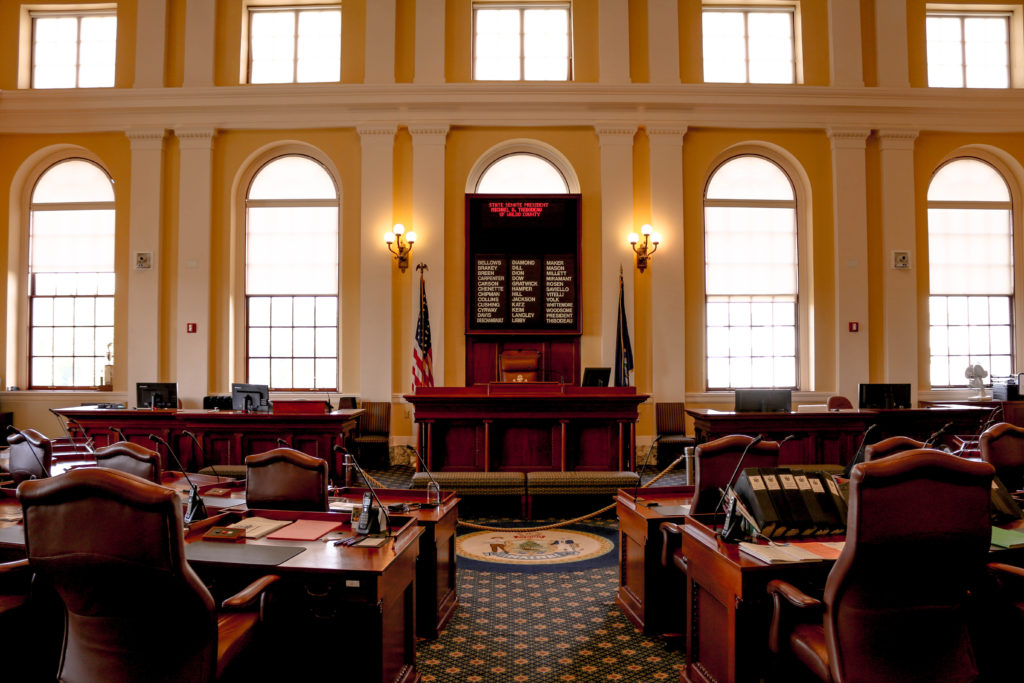Mixed success
The 130th Maine Legislature’s record on tax fairness is mixed. During one of the most chaotic and turbulent sessions in recent memory, the legislature was able to make some movement down the path to unrig the Maine tax code before running into some obstacles and leaving other work to be tackled next year.
Clear successes are the elimination of an ineffective and expensive corporate tax loophole and the expansion of the Earned Income Tax Credit (EITC). Closing the Foreign Derived Intangible Income (FDII) deduction will save the state $8.6 million annually, both making the tax code fairer and freeing up funds for programs that help Mainers in need rather than multinational corporations. This happened relatively early in the session with the passage of the first supplemental budget package. The EITC works in the opposite direction, aiming funds at people who need it the most. The inclusion of this expansion in the most recent supplemental budget means that 100,000 households will get more resources that help make ends meet.
The largest disappointment is the failure of legislature to pass bills — including one that would have used the increased revenue to fund further boost the EITC — that would lower the exclusion amount for the Estate Tax and increase taxes on people with the greatest wealth by creating a new upper-income tax bracket. These bills received positive votes out of committee but did not make it to the Governor’s desk; a frequent argument against them was increased revenue projections and plentiful federal funds. With this influx of revenue, the state was able to fund important and impactful programs, but the longevity of these commitments may be tied to the appetite for passing meaningful tax fairness measures in sessions to come.
Strong public support for tax fairness
Wins do not always mean policy making it into law. Two additional signs of support for tax fairness are the number of progressive revenue proposals submitted by a wide range of lawmakers and increasing engagement from diverse voices who spoke up for their passage. More than a dozen members of the Maine House of Representatives submitted bills that would have closed loopholes, changed rates and brackets, or worked in other ways to tilt the economic scales back in favor of everyday Mainers instead of individuals with wealth and large corporations. Sponsors included Speaker Ryan Fecteau, who submitted a bill to create a hazard payment for frontline workers funded by the creation of a new income tax bracket aimed at family incomes over $500 thousand. And Assistant Majority Leader Rachel Talbot Ross submitted a bill that would reduce the exclusion amount for the estate tax, bringing it back to pre-2010 levels, and using this money to build affordable housing.
Although not all these bills made it into law, they highlight concrete opportunities to address unmet needs of Mainers as well as the approval of tax fairness in principle, inspiring wide and deep engagement from the public. This year, the Taxation Committee heard from workers, immigrants, environmentalists, small business owners, teachers, healthcare providers, and organizations that advocate for women, older Mainers, and people in need of substance use or mental health services. They even heard individuals with wealth who would pay more speak out about why tax fairness is important for our state and our democracy. Many of these groups who testified also came together this session to form Mainers for Tax Fairness, a new coalition of which Maine Center for Economic Policy is a founding member. The Mainers for Tax Fairness mission is to bring a wide variety of voices into the fight for tax fairness, rooted in the idea that people and communities do better when everyone has the resources they need to prosper and thrive.
More to do
A number of bills that could significantly impact Maine tax code were carried over to next year and will likely be taken up by the Taxation Committee in January. These include “LD 428, An Act to Prevent Tax Haven Abuse” which has the potential to close another costly and fundamentally unfair loophole used by multinational corporations to avoid paying taxes in Maine. Another is “LD 1129, An Act Relating to the Valuation of Retail Sales Facilities.” Better known as the Dark Store Bill, this legislation would stop a manipulative legal tactic that allows big box stores to avoid paying their fair share of local property taxes. The passage of these bills would diminish the power of large corporations that rig the tax code in their favor and leave everyone else to pay for it.




